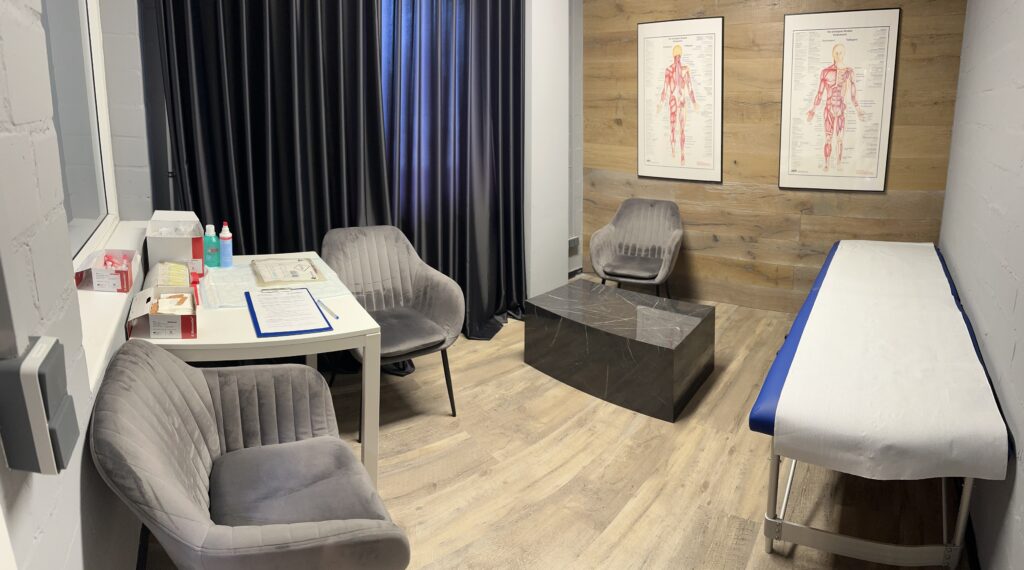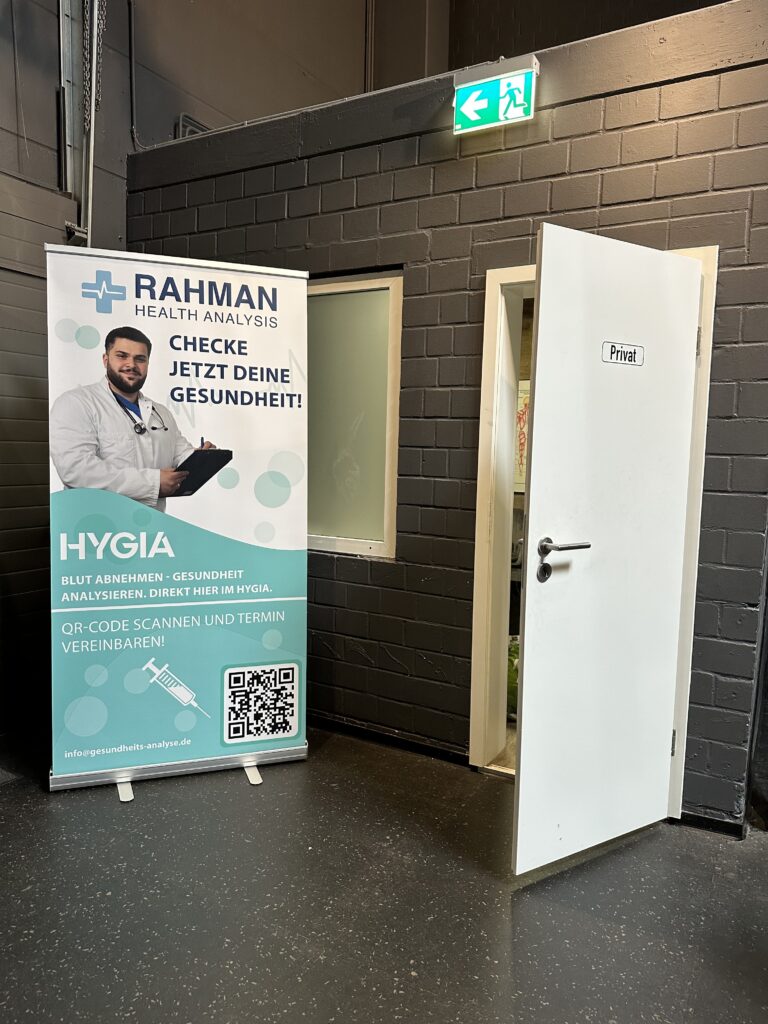A training plan that not only challenges - but understands
Many people train hard - but not necessarily properly. The difference between progress and frustration often lies not in the discipline, but in the Structure. Our approach: A training plan that doesn't simply provide generalised guidelines, but instead is tailored to your physical requirements and laboratory values.
Whether you want to build muscle, lose fat or increase your stamina - your body has its own signals. And we help you to understand them. Because a plan that matches your hormone profile, your blood values and your recovery is not only more effective - it's also healthier.

What blood values reveal about your training
A simple glance at your blood can reveal more about your training ability than any app. Are your Ferritin valuesin the cellar, you will feel tired even if you eat well. If your Testosterone lowyou lack the strength for real build-up processes. And if Cortisol is permanently increased, you regenerate less well - despite a break.
Our analysis specifically addresses the markers that are crucial in sport: Iron metabolism, inflammation parameters, thyroid values, muscle stress markers such as CK (creatine kinase)vitamins, hormones. You don't get isolated figures - but a real evaluation: What does this mean for your training? And how can you react to it?


Between plan, pause and progress: how we support you
Any training plan is only as good as its implementation - and that starts with a realistic view of yourself. In our practice you get not just a sequence with repetitions and split phasesbut a medically validated recommendation: What level of exercise is right for you? How much recovery do you need? And what should you adjust in your everyday life to make your training really effective?
Together we discuss your goals - athletic, physical and health-related. We combine medical diagnostics with a functional understanding of training. And create a bridge between laboratory values and dumbbells.
Adaptation, not dogma: your dynamic training process
A real training plan is not a rigid document, but a dynamic tool. Your body changes - and your plan should grow with it. That's why we regularly incorporate feedback loops: How are you feeling? What does your body show? And: What do your values show?
We accompany you not only with numbers, but with feeling - well-founded, understandable, close at hand. So that your training doesn't just work on the surface, but really makes a difference - permanently.
At our practice, you also have access to a range of complementary services and specialists, such as nutritional counselling, physiotherapy and psychological support, to ensure you are well looked after throughout your pregnancy and beyond.
Your health and well-being, as well as that of your baby, is our primary goal. We look forward to accompanying you in this exciting phase of your life and providing you with the best possible care.

Frequently asked questions
Our practice focuses on your health and well-being.

1. why do I need medical values for a training plan?
Because blood values provide information on resilience, regeneration and performance reserves. Only those who understand how their body reacts can train sensibly in the long term.
2 What exactly is analysed in the blood?
Depending on the objective, we analyse, for example, iron/ferritin, CK, testosterone, cortisol, thyroid, vitamin D, inflammation markers and, if necessary, glucose/insulin profile.
3. does this also make sense for recreational athletes?
A structured plan is particularly important for amateur athletes - to avoid overtraining, incorrect strain or lack of progress.
4. do I have to come to the blood test on an empty stomach?
Yes for many values. You will receive all the information you need to prepare in advance.
5 Is my diet also taken into account?
Absolutely. Your diet directly influences your training and blood values. If desired, we can also create a customised nutrition plan.
6. how often should you adjust your training plan?
Approximately every 8-12 weeks - depending on progress, target and blood values. Cycle-based or phase-orientated adjustments are also possible.
7 What if I suffer from stress or sleep problems?
Then we take that into account. Increased cortisol, poor regeneration or fatigue have a direct impact on your training - and should be planned for.
8. do I also get exercises or only guidelines?
On request, you will receive specific training suggestions - including structure, scope, load and periodisation. The implementation is practical, with a medical background.
9 Is this a health insurance benefit?
No. Our training support is a private medical service according to GOÄThis means that it is usually covered by private health insurance, but not by statutory health insurance.
10. do I absolutely need laboratory values or can I do without them?
You can do without it - but it is like driving a car with a blindfold. The values show you how your body reacts internally - and this is the basis for precise training.